AARP Hearing Center

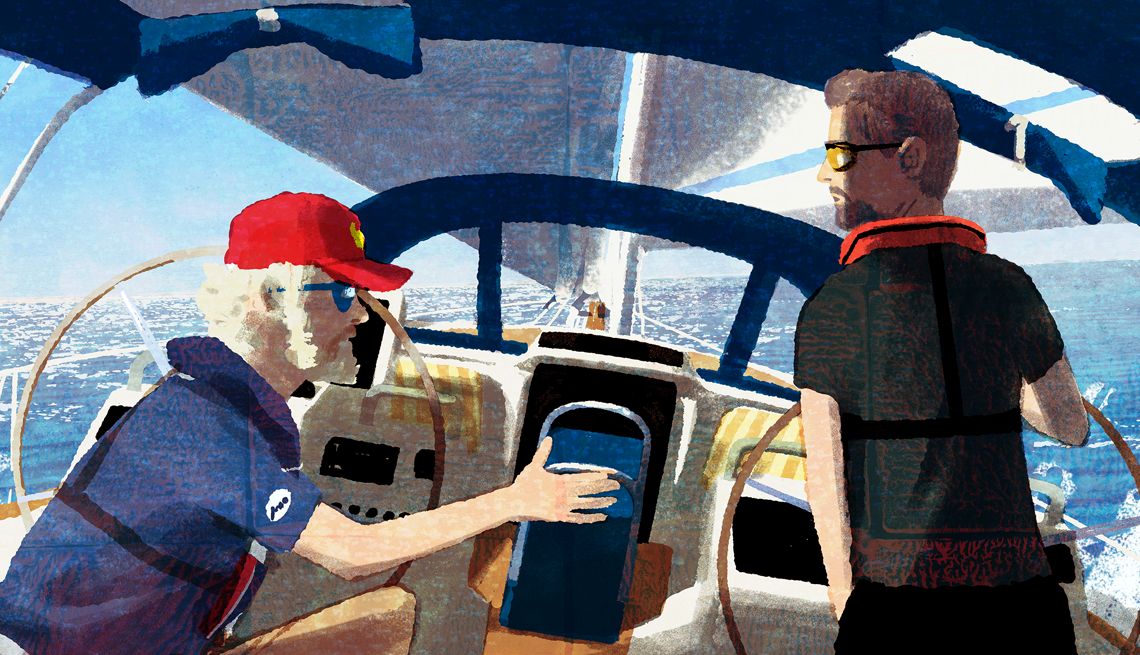
This essay, originally published in the June/July 2023 digital edition of AARP The Magazine, won a Gold Award for Adventure Travel in the prestigious Lowell Thomas Travel Journalism Competition.
This was a terrible idea. Three days into what could be a 20-day ocean crossing, and he’s bleeding everywhere. My father’s blood looks young and vital, smeared on the white hull. But my father is not young. The blood pools beneath his papery skin. How fragile is he really? Two hundred miles off the coast of Western Sahara, the question is academic, for there is no turning back.
It was nearly a year earlier that I had suggested we sail across the Atlantic. My father had been depressed, unsure what to do with himself. He tried to keep busy volunteering at local arts organizations and taking photographs. But neither of these pursuits ever fully absorbed him. The fully absorbing pursuit had always proved elusive.
Sailing was the exception. Sailing combined the aesthetics of light, space and water with the physics of sail, line and wind, and in the easy meshing of these themes my father’s restless character found vindication. Sailing, I knew, would make him feel like himself again.
But this was not my only motive in proposing such an audacious venture. My father was 80 years old, and while he was still fully mobile and aware, I knew time was growing short. And I worried that when his time ran out, he would not be ready.
I’m ashamed to say that this worry was not just for his sake, but my own. I had been there when my maternal grandparents began to decline. Neither of them had been ready to leave this life, and the job had fallen to my mother to ease their passage. It was a job I did not want to perform for my father. I was not strong enough. I could, however, talk with him now, acknowledge his fears, regrets and uncertainty, and then suggest ways to make those feelings easier to bear.
One recent winter, we had gone for a walk in a cemetery near my parents’ home in western Massachusetts. He wanted to show me the plots he had bought for himself and my mother. It was the sort of thing one didn’t quite know how to react to. (Admiringly?)

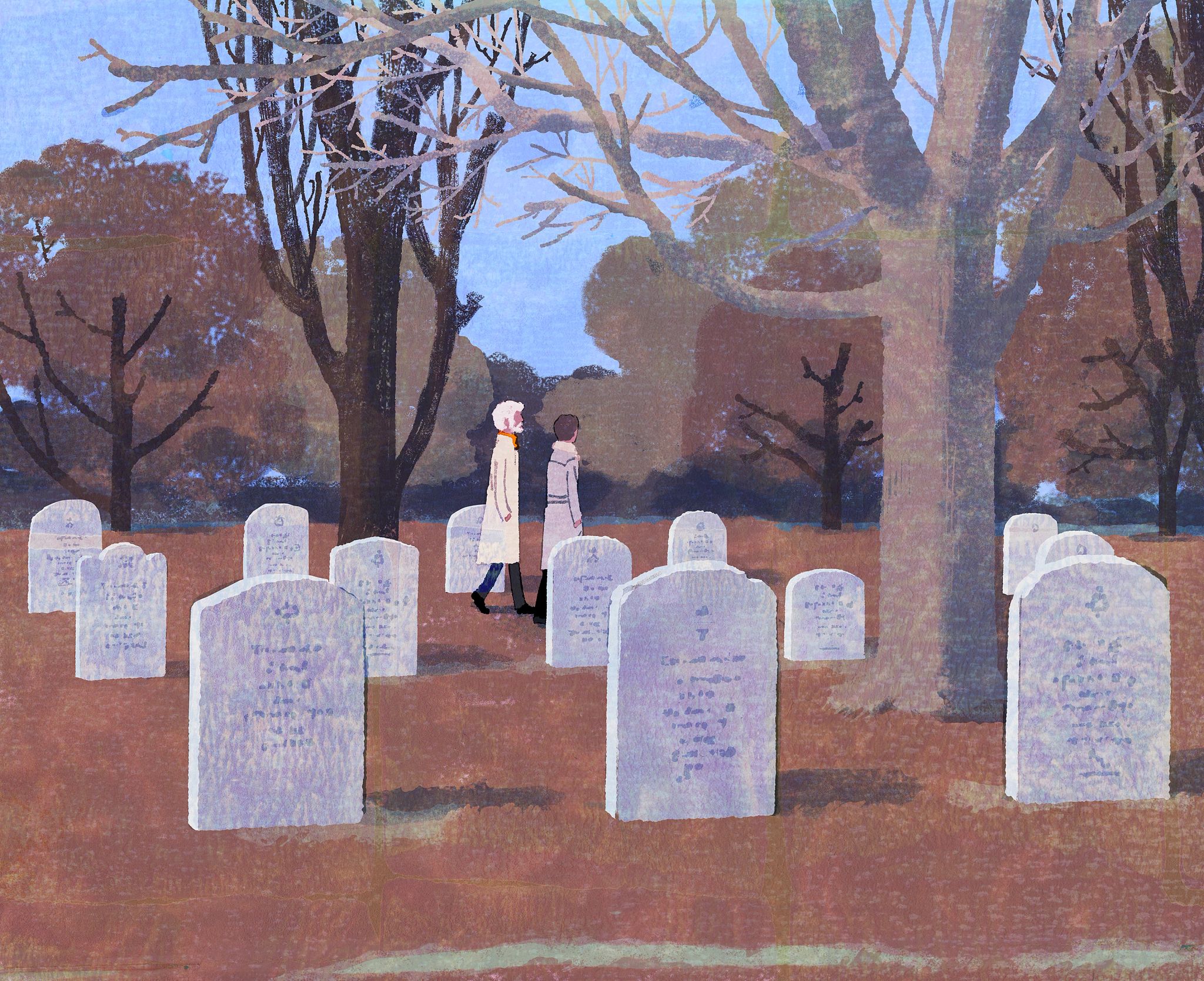
The plots were good ones, as it happens, on a shady hillside far from the road. We stood there awkwardly. Death is never an easy subject. Best to be direct, I figured.
“So, how are you feeling about, you know, total extinction?” I said.
He didn’t answer, but he didn’t really need to. I knew he was scared, because I was scared, and I was like him.
You would think that everyone would be scared of dying, but this is not so. There are some maniacs in this world, my in-laws for instance, who evince no fear whatsoever of leaving it.
“You live your life and that’s it!” my father-in-law says with a cheerful shrug.
His attitude is perfectly rational, of course, but that doesn’t make it any less crazy. Death, to me, has always meant a moment of total helplessness. And as a committed control freak I found sanguinity impossible.
We are of course always in some way helpless — helpless to slow the flow of time, helpless to avert aging and loss. On the other hand, we’re also free to test the limits of our helplessness. Which prompted me to ask my father something else: “Is there anything you want to do now that would maybe make it easier to check out, when the time comes?”
This was a more manageable question. In good faith, he kicked it around for a bit, and then, more for my sake than his own, I think, he said, “Well, I always wanted to sail the Atlantic …”
“Well, why not?” I gushed, with relief. “I’d even go with you.”
That was December 2020. In the months that followed, my father seemed to come alive, energized by the question of whether attempting to sail the Atlantic at his age was ambitious or just reckless.
There were real reasons not to go. First of all, when you’re 80, you don’t want to be more than 30 miles from a hospital, let alone 2,000 miles by water. My father took 16 pills a day, most of them for polycythemia vera, a rare form of blood cancer. His digestion was not what it had been, and he had trouble sleeping. At 6-foot-2, he might not even fit in a sailor’s bunk.
My father’s decision methodology involved exhaustive research, and in the weeks that followed, I received regular updates from him detailing various options, and the costs and logistics involved. I doubted whether this methodology would ever yield a convincing decision. Because it wasn’t just a question of costs and logistics. It was a question of how big to think, as you get older. How ambitious to be.
When you’re young, this question is easy. Aim high. Conquer everything. But with age the value of ambition becomes increasingly suspect, until eventually it can seem like just another of youth’s follies, a regrettable side effect of failing to recognize life’s true proportions.
If, on the other hand, you do recognize those proportions, and manage to inhabit them fully, you’re far more likely to be satisfied in life, and far less likely to feel terrified or outraged upon reaching the end. Such is the wisdom of age.
What was the point, then, in setting forth on some Homeric voyage in your ninth decade?
It was perhaps inevitable that at some point a trope like the bucket list would come along to help us reckon with this question. Even as time grows short, you can still do big things!
And there was some truth to this. Because it’s way too easy to underestimate our potential as we get older. Especially in a culture in which that potential is underestimated at every turn.
Bucket lists were a way to correct for this error. They reminded old folks how to think big. Was this trip wise or foolish? How do you combine the energy and optimism of youth with the humility and prudence of age?
These were the questions my father grappled with in the days following our walk in the cemetery. And eventually he arrived at an answer.

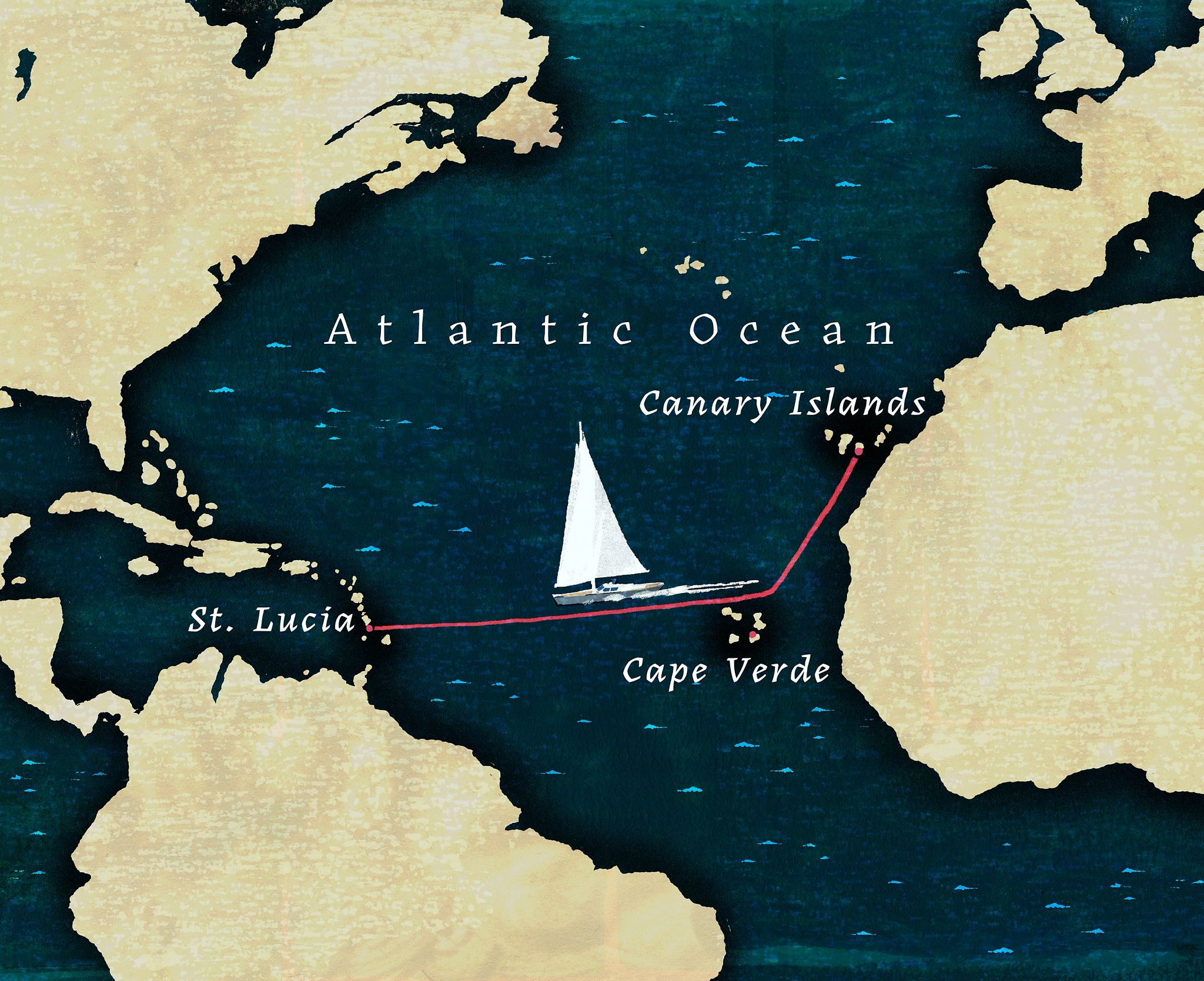
It came in the form of an email containing a link to a 63-foot charter sailboat that would be making the crossing in November of 2021, and below that a single word: “eek.”
The boat would set sail from the Canary Islands, off the west coast of Africa, and follow the trade winds to St. Lucia, in the Caribbean. The captain had made the crossing several times before, and we, with several others, would serve as his crew. Falling somewhere between the luxury of a first-class cabin on a Carnival cruise ship and the misery of an open boat, this seemed a not-unreasonable compromise.
As the months ticked by, we kept an anxious eye on the COVID-19 numbers — yet another factor in the already complex risk calculus. By August, a different number was threatening to derail our plans, when routine testing revealed elevated prostate-specific antigen (PSA) levels in my father’s blood. Further testing confirmed the presence of prostate cancer.
“F---,” my father said.
More calculations ensued. How aggressive was the cancer? Had it spread? When did he need to start radiation? What side effects could he expect from the hormone treatment?
At a certain age your parents become like works of art. You just stand around and admire them.
He consulted several doctors. Yes, the cancer had spread. Yes, it was aggressive — but not that aggressive. The side effects of the hormone treatment varied, but could include fatigue, loss of muscle mass, metabolic problems.
Ultimately the doctors cleared my father for travel. He could start the hormone treatment before leaving, and start the radiation treatment on his return. This was hugely reassuring to hear, at first. But in the days that followed I couldn’t help wondering. Yes, the doctors were the experts. But how many of them had ever been on a boat?
The 20 hours of plane travel nearly killed us both. On finally landing in the Canary Islands, we staggered down the jetway like a couple of centenarians. I was glad we were sailing back to the Americas. I would take 20 days at sea over 20 hours flying coach any day.
My father was an ideal travel companion. He could endure a lot and still emerge in relatively good humor. This was but one of his many quietly winning qualities. I was seeing these more clearly now. At a certain age your parents become like works of art. You just stand around and admire them.
The morning after our arrival we made our way to the marina where our boat, the Skyelark 2, was berthed. The marina exuded the busy self-absorption of a bird colony. Everywhere you looked people were hosing down decks, fiddling with rigging and stowing stores. For such a dreamy breed, sailors can be unusually fussy. And rightfully so. If the rope’s not coiled right, over you go.
Every marina is a boat show. Half the pleasure of owning a boat is strolling the docks and eyeballing the boats you might have owned, and might still. About 140 of these boats would be accompanying us on our journey, as part of an annual event known as the ARC — the Atlantic Rally for Cruisers. The rally was mostly for motivational purposes, to give semi-interested sailors like my father and me the encouragement necessary to commit. Within a day or two we’d be on our own as hull speed, sail area and pilot preference dispersed the boats across dozens and ultimately hundreds of miles.
The Skyelark 2 was parked on the marina’s last dock. Despite being 20 years old, she still looked pretty slick, with slim lines and fiercely raked cabin windows. But there was also a roomy cockpit where rum punches could be lazily consumed. Not that we would be drinking any. With no onboard medical expertise, risking mishaps due to inebriation was not an option.

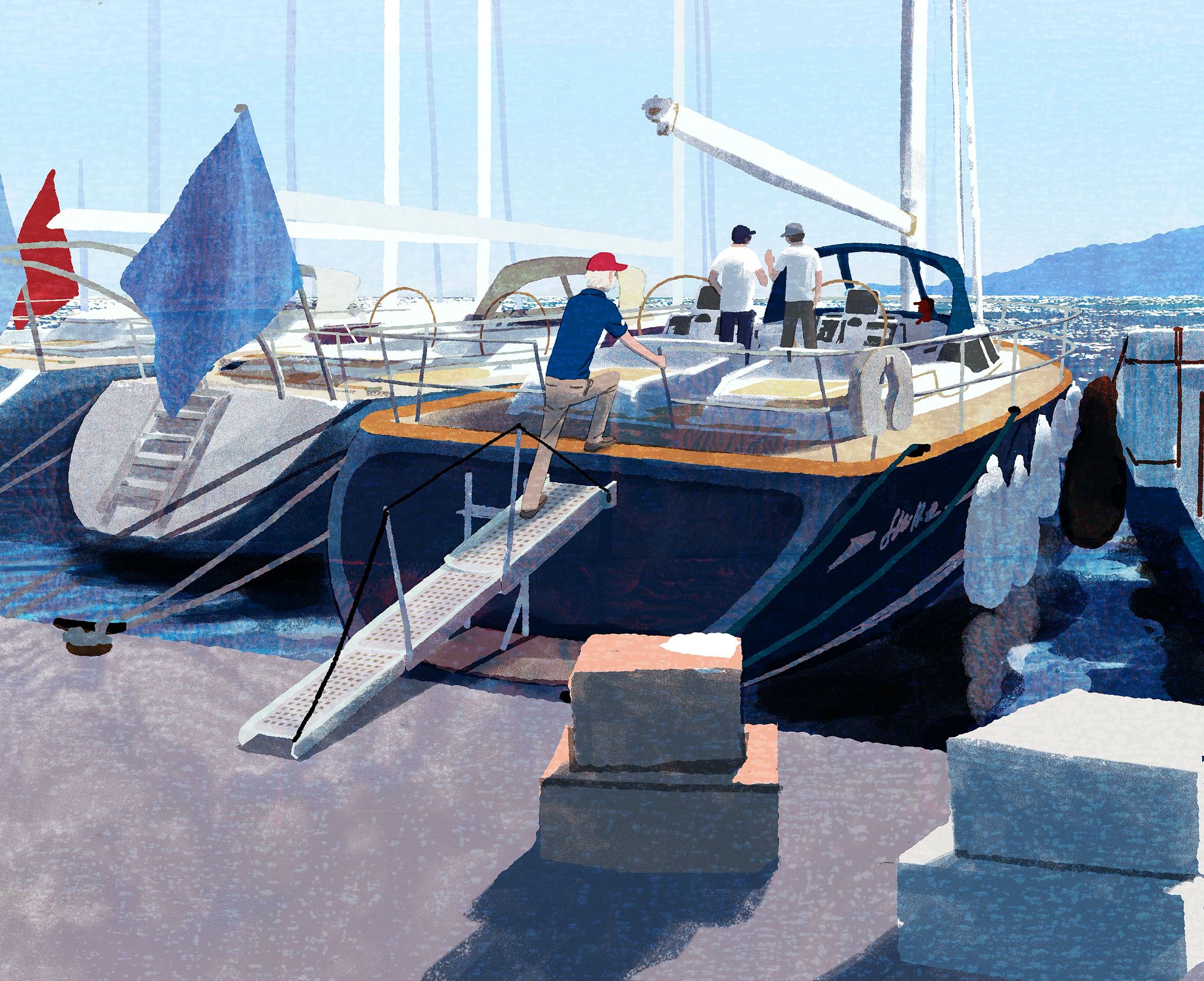
Our captain was Dan, a child of 39. We’d been expecting someone old and grizzled, as sea captains are wont to be. Dan leaned in the other direction, boyish and blond. Short of stature, with chubby cheeks and British teeth, he was not a particularly imposing figure. Once he started talking, however, you could hear the easy confidence of a man who knew his craft, in both senses of the word. You could see it, too, in the way he stood, loose hipped, bare feet spread, calves strong from living life on a forever tipping surface. At a squint, one could picture him as a boy of 12, leading a squad of urchins on some tumbling adventure through woods and alleys, wooden sword held high.
“From the middle of the ocean it would take around 70 days to paddle a lifeboat to shore,” the captain said. “But even if we didn’t paddle, the currents would still get us there in 90.”
Over the next two days, the rest of the crew dribbled in, mostly British men in their 60s — no women, which was unusual, Dan said. Almost all had either owned a boat at some point in their lives or else owned one currently. Most said they had always wanted to make the crossing, and were doing it now while they still could. One said he simply wanted to “end a day of sailing not in the harbor.” All were impressed that my father had undertaken the ordeal at his age.
We slept onboard the next three nights, acquainting ourselves with the boat and each other. The bunks were only 6 feet long, so my father and I had to switch to a cabin where his feet could hang over.
The day before departure Dan gave a safety briefing — basically a foreshadowing of every catastrophe we might encounter. Fire. Lightning strikes. Collisions. Dismasting. Recently in the Bay of Biscay several sailboats had been attacked by a pod of orcas, which chewed off their rudders and left them to drift. The bigger risk was somewhat less exotic: a valve falling off or hoses failing.
Illness and injury were even more likely.
“Move slowly,” Dan said. “Boats generally don’t break, but people do.”
The boat carried a medical kit but its offerings were meager, and helicopter evac range was limited to 300 miles. Beyond that we were at the mercy of passing cargo ships, and even then, reaching land could take three days. If you were lucky a superyacht would be nearby.
To conclude the briefing Dan brought out the grab bag, which contained everything necessary for survival in the event we had to abandon ship: various communication devices, inflatable radar reflector, signaling mirror, GPS, TPAs (thermal protective aids), passports, fishing net, water maker, cinnamon biscuits and, most suggestively, a book of hymns.
“The good news,” said Dan, “is that from the middle of the ocean it would take around 70 days to paddle a lifeboat to shore. But even if we didn’t paddle the currents would still get us there in 90.”
Among the various dangers reviewed that day, there were several that Dan didn’t mention, but we would learn about these en route.

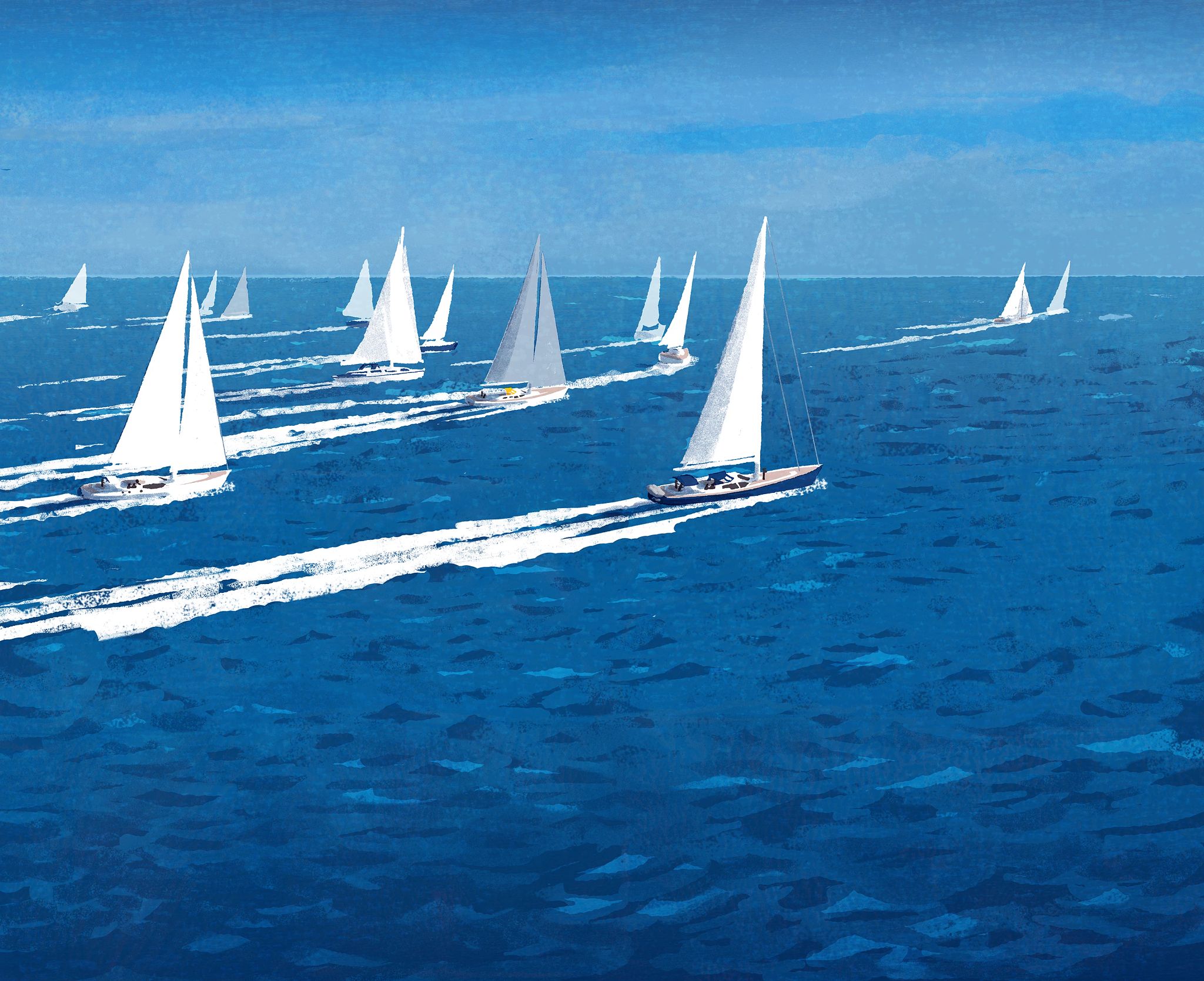
On the day of departure the winds were blowing from the northwest, the sun dully shining behind a light awning of clouds. In the marina the water chuckled under the hulls and the masts glowed like birch trunks. Sailors scurried around their vessels, drawing down pennants, battening hatches, hoisting dinghies and last-minute provisions.
At around 10:30 a.m. the air horns started to sound, and the boats, with a ponderous majesty, like great elephants tromping off to war, began making their way out. Sloops, mostly; ugly, blockish cats; lethal-looking racing boats; a rare two-master named Blue Magic — the naval parade went on for over an hour, with well-wishers gathered at the jetty’s end to blow kisses and holler charms to keep their sailors safe.
The air horns started to sound, and the boats, with a ponderous majesty, like great elephants tromping off to war, began making their way out.“Save me some rum punch!”
“Have fun, don’t die!”
“Schnell!”
The voices sounded small and plangent across the water. One by one the boats turned their hindquarters to the land and set forth upon the wide blue sea. The scene led you to open your senses, lift your chin to take in the feel of the sun, the crack of the halyards, the wind carrying spice from the tops of the waves. It was a thing to make you feel like a child again, in awe of the waiting largeness of the world.
“Quite a few masts out there, aren’t there?” one of our crew remarked. “So there’s lots of people with the same silly idea.”
On went the life jackets, up came the bumpers. Dan started the engines and eased us out. Land sounds faded to the bucking hush of water, the insistent lowing of an outbound ferry and a baby wailing over the radio. Someone had left the transmit button on, as if to congratulate us on all we were escaping.
A 300-foot warship marked the right side of the long starting line, a buoy the other, and all along it dozens of boats were jockeying for position, pawing the waves and awaiting the gun. With a call from Dan a tower of sail unfurled above us. Over the radio a voice counted down. One minute. Then the distant pistol shot.
We turned just astern of the warship and went out on a starboard tack. There were a few tense moments as another boat cut along the starting line. Then the jib was out, the engine off, and we were sailing, close hauled just south of east with about 20 boats ahead of us. On the radio, Blue Magic called in the first injury — finger severed in a winch.
My father and I sat watchful as cats as the ocean opened before us, and behind us the island of Gran Canaria faded to gray paint strokes. No one spoke. We were aiming for an angle to get around the island’s southeast corner. Then we would tack and head southwest toward the Cape Verdes.
“You can sail around the entire world in only two tacks,” the captain called out over the wind. “We’ve done two today already. It’s very upsetting.”

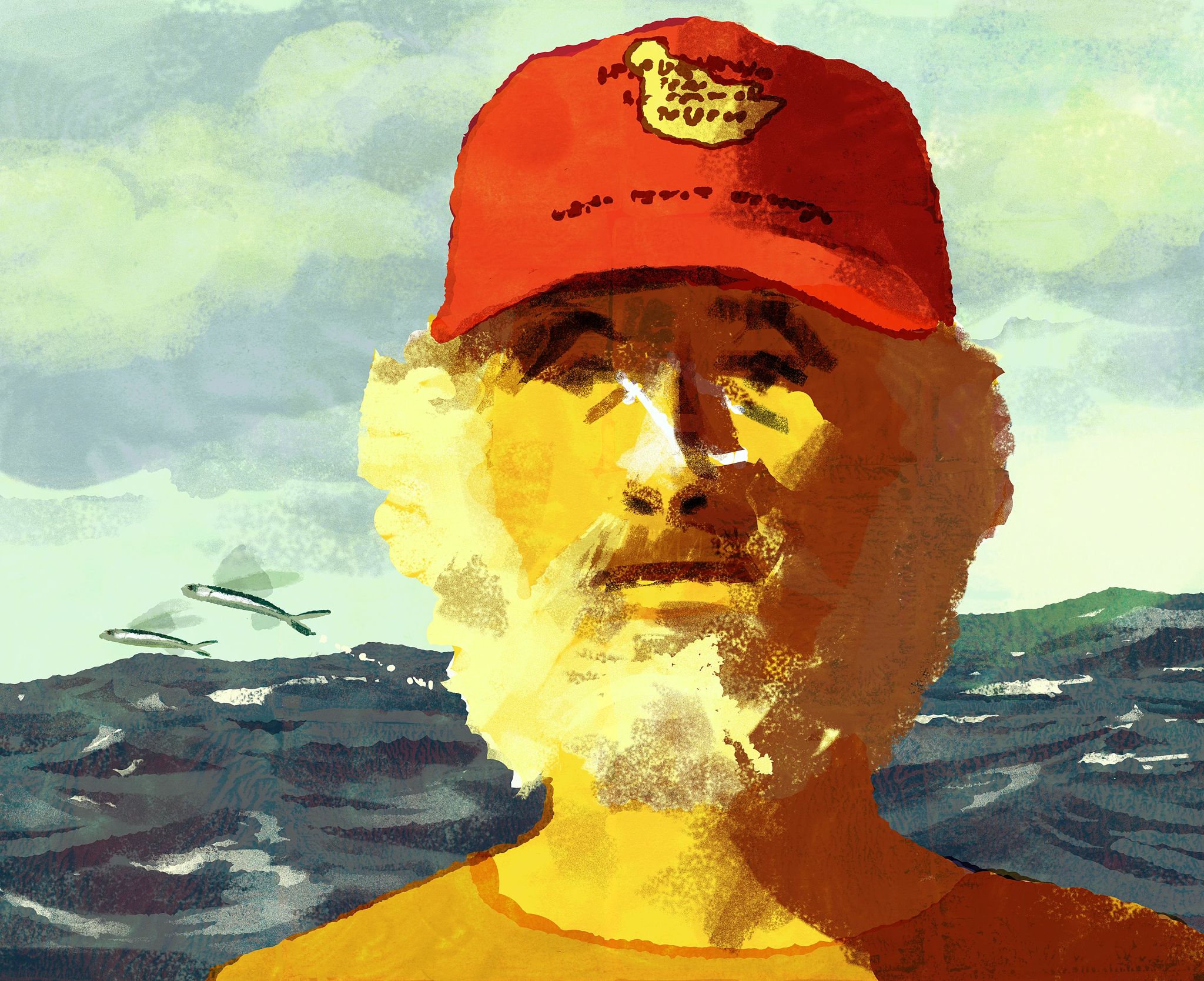
By afternoon there was no land in sight, and the number of boats in view had dwindled to two. By evening a low-pressure system to the north had blocked what remained of our wind. Anticipating this, several boats had steered into the low-pressure system, braving the squally weather for the speed advantage. With our amateur crew we took the more conservative route, drifting south for the next few days under light winds and engine power.
As land vanished, ordinary time did also, and the sea schedule clicked in. Watches were three hours long, every six hours, day and night — except every fourth day, when watch teams took turns doing all the cooking. While on watch, you and your watch buddy were responsible for monitoring course, speed and proximity to other boats — especially at night. The danger then was rogue fishing boats that ran without running lights to save power. The French, it seemed, were frequent offenders.
My watch buddy was a large, Queequeggish Pole with a rare, quaking chuckle and skin scrimshawed with tats. He didn’t talk much, and that suited me fine. My father was less lucky, being paired with an aristocratic Englishman who had unusually long tibias and a rectangular head. Tim had a friendly, sneering way of talking, owned two vintage cars with wooden steering wheels, and emerged daily in immaculate brand-name clothes, including knee-length shorts that always rode a bit high in the back.
The watch system was augmented by a seemingly endless number of rules, some practical, others, it seemed, just gratuitous enough to offer a whiff of nautical tyranny. Blue ink only for log entries. Wooden spoon only for the porridge. No life jackets beyond the saloon.
“I’m trying to keep it to one mistake a day,” my father said, miserably, on the third day. He was already at two by that point, and couldn’t remember the first.
The procedure for disposing of garbage felt like an arts and crafts project, involving five different steps, including scissors and tape. The procedure for making coffee was no less prescribed. Four-and-a-half scoops, no more, no less, and water to be administered from a special bottle on which the correct volume had been denoted with a Sharpie.
“Which brings us nicely to tea towels,” the captain went on. “We don’t want 16 out all at once because they will all go a bit manky.”
To be sure, with such limited resources and so far from land, rules were to a certain extent necessary. But somehow juxtaposed with the ocean’s profound indifference the fussiness felt a bit absurd.
My father and I both chafed under the regime. But I at least remembered the rules, mostly. My father did not. He would, for instance, fill the coffee maker with the coffee pot instead of the stipulated bottle — a grave offense, for some reason. He would leave the water in the kitchen running too long, or forget to turn down the brightness on the navigation screen.
“I’m trying to keep it to one mistake a day,” my father said, miserably, on the third day. He was already at two by that point, and couldn’t remember the first.
Physically, my father had always been a bit awkward. He reminded me of a stork, tall and knobby, with limbs always folding all over themselves. He walked with a funny bounce and often tripped on his feet.
He was no less awkward socially. At events for which he would rather not have been present (all of them) he had the entirely unconscious habit, much to my mother’s dismay, of emitting profoundly expressive sighs.
He was also very funny, though often in a way other people did not recognize. When we were first getting acquainted with the rest of the crew, one of them was sharing a story about his daughter, who had recently been thrown by a horse. Her arm was badly fractured in the fall, and had to be reinforced with several metal plates.
“And the horse?” my father inquired.































.jpg?crop=true&anchor=13,195&q=80&color=ffffffff&u=lywnjt&w=2008&h=1154)



























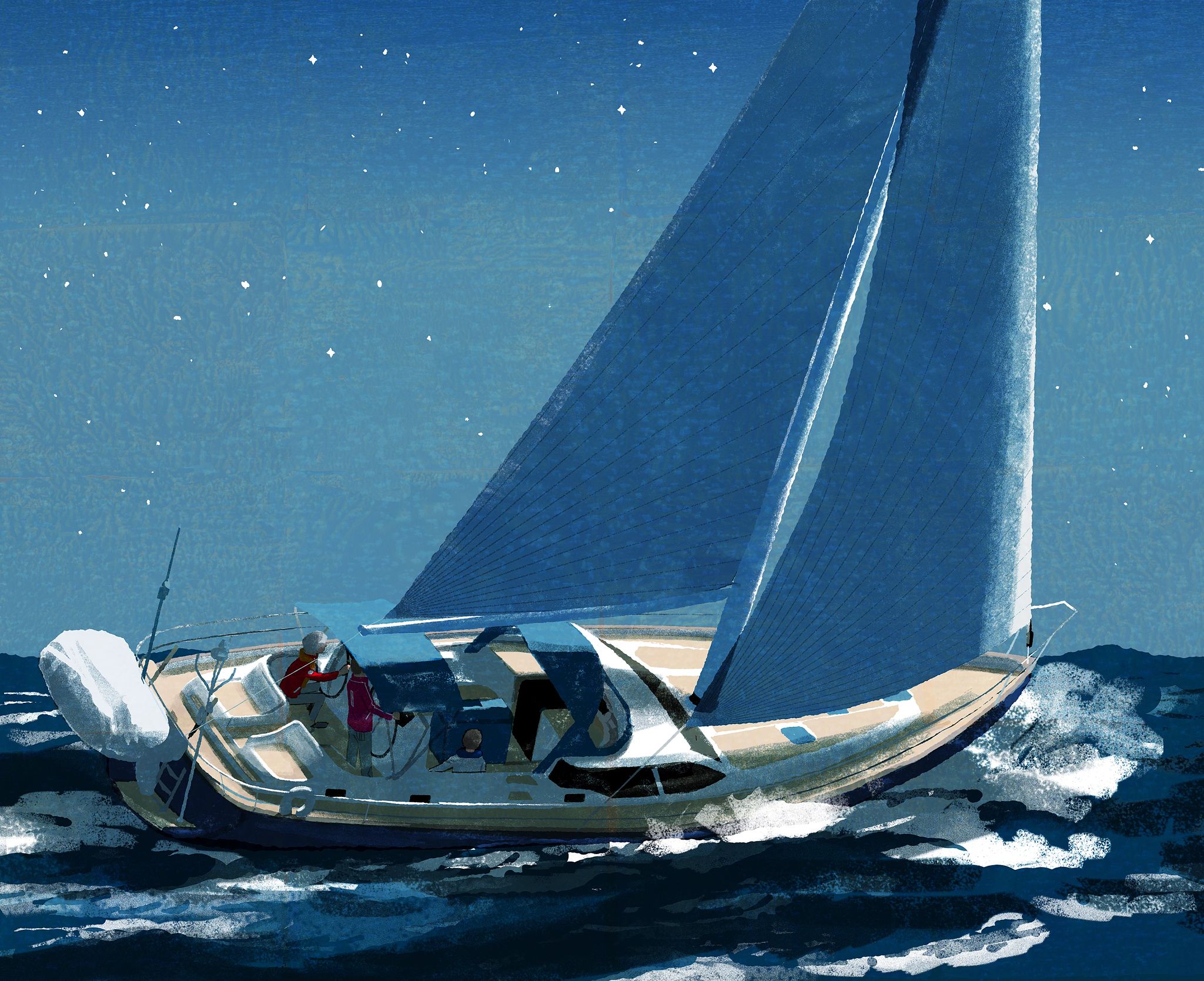
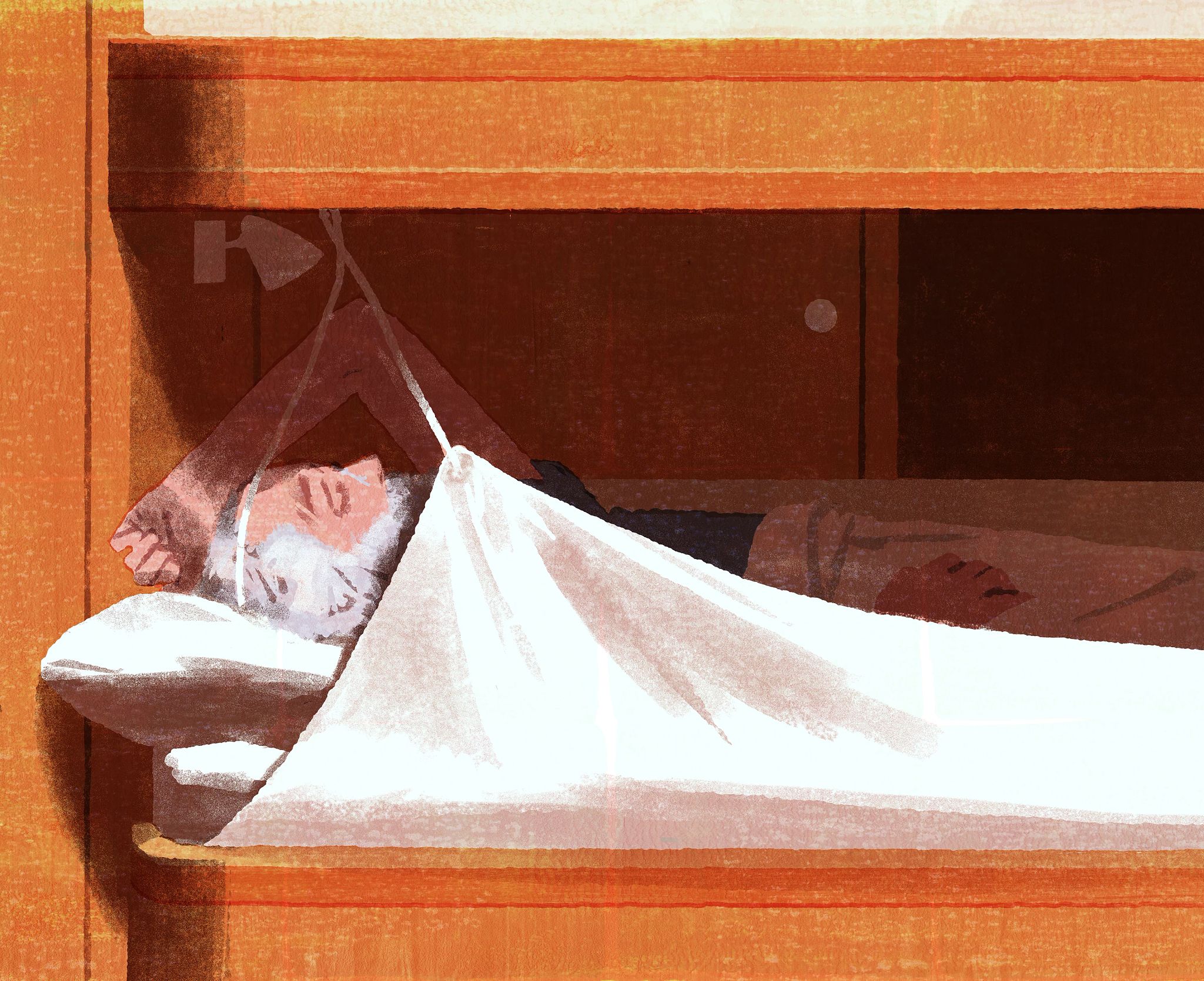
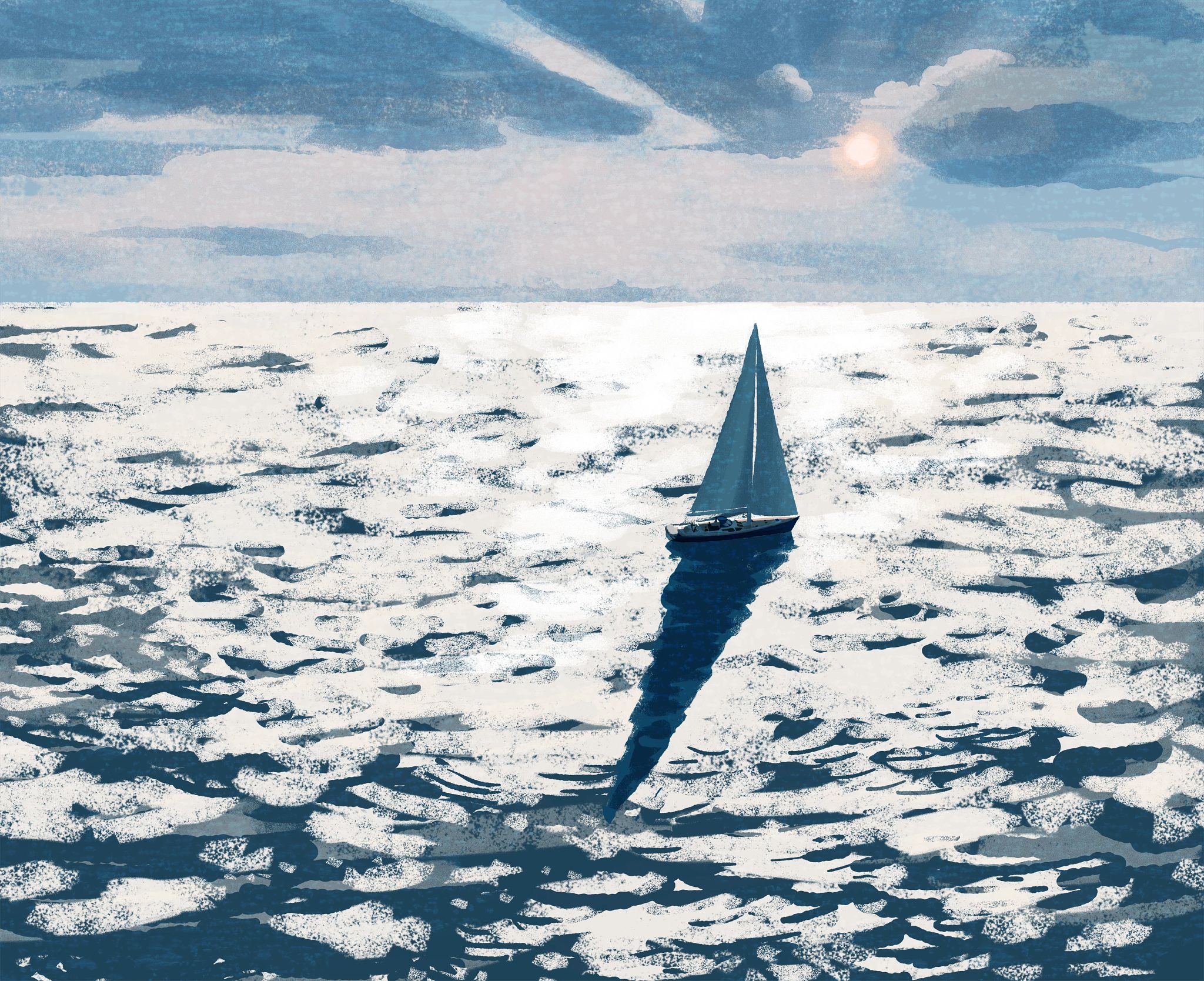
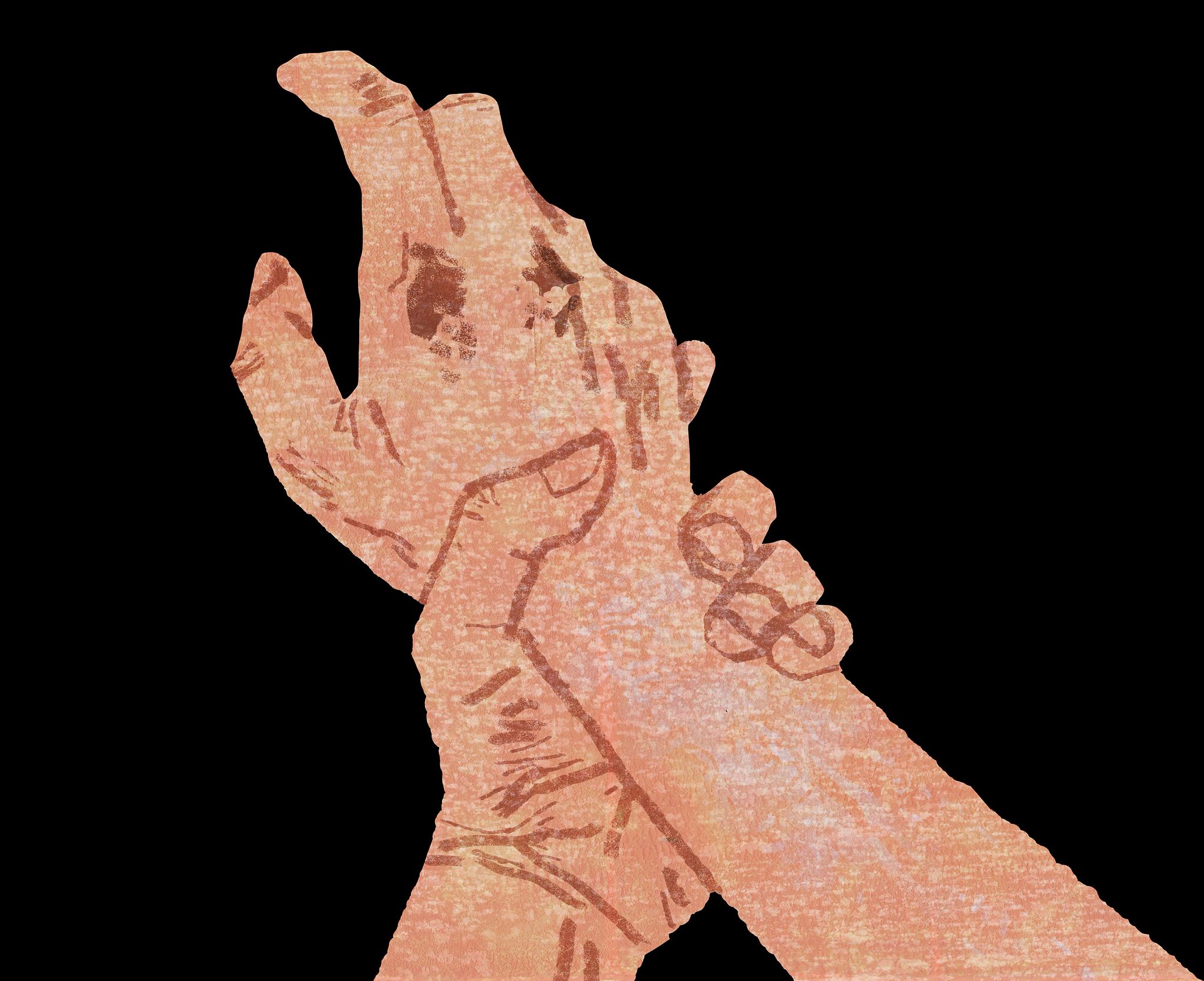


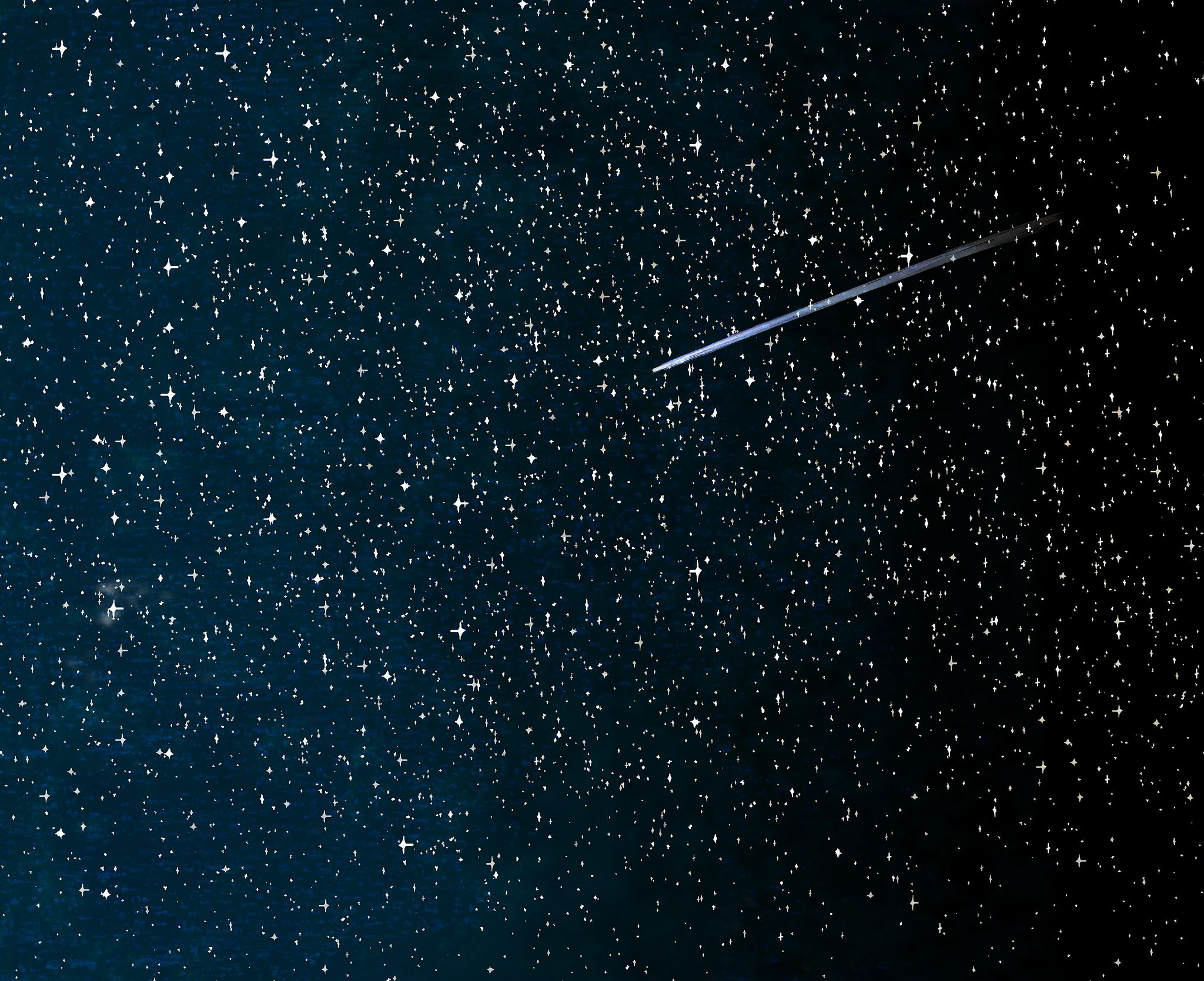
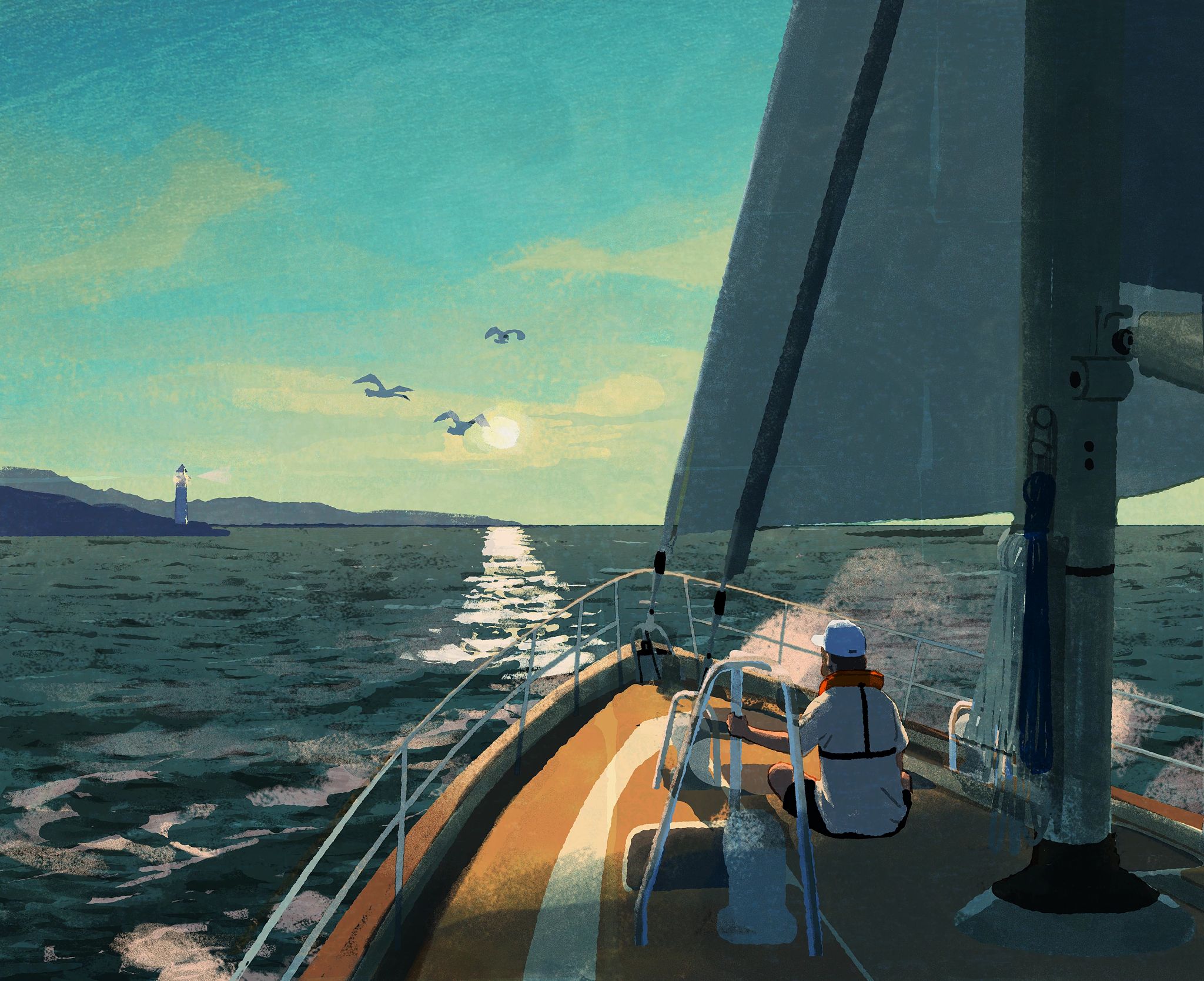
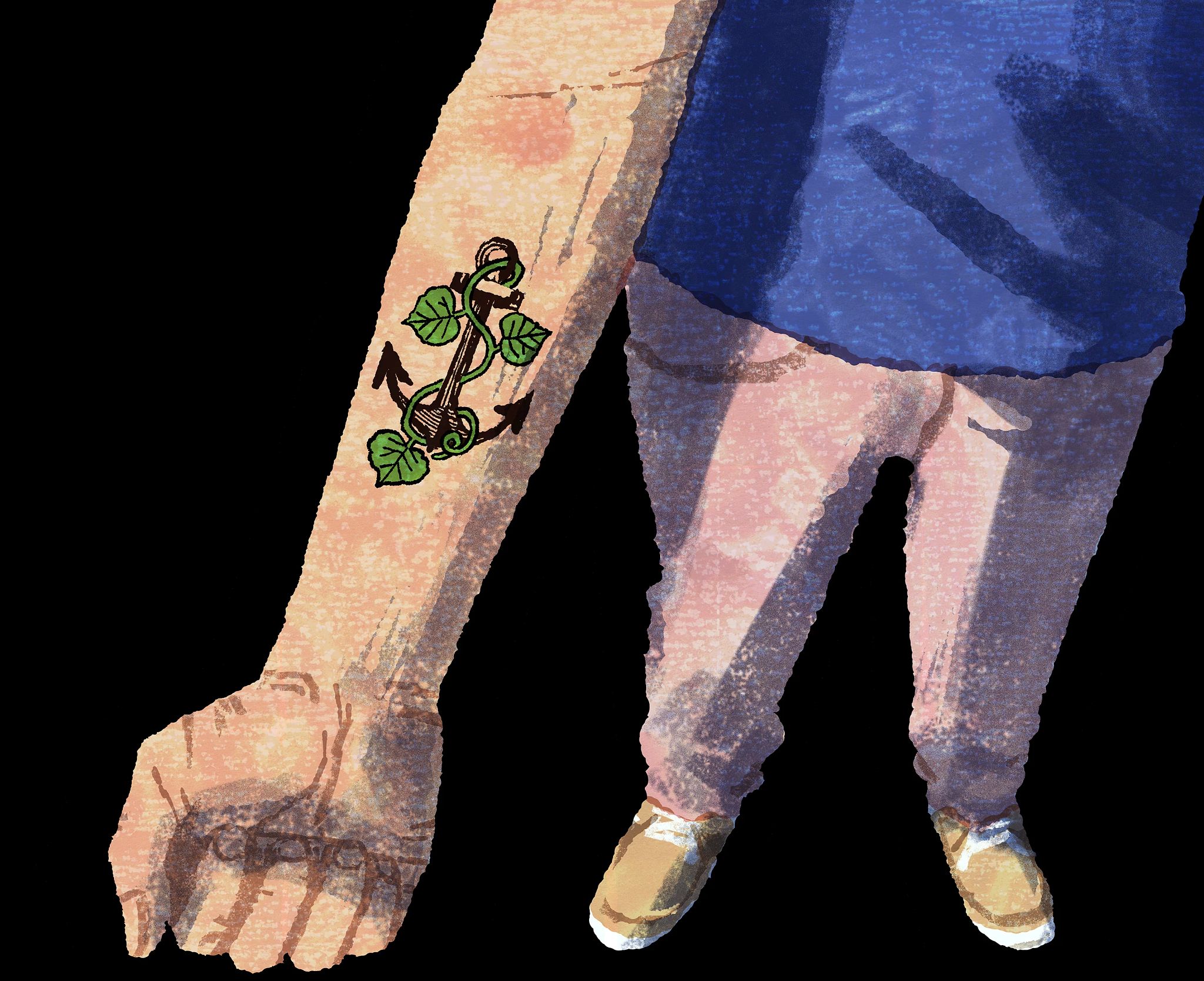

You Might Also Like
At 99, Rey Baumel Shares His Good Life Secrets
Latin music, humor and family go a long way for this multitalented entertainer
What It’s Like to Suffer Several Strokes
I had seven strokes in one year — and am here to write about it25 Great Ways to Explore a New Area
Get to know a destination quickly with this handy travel guide